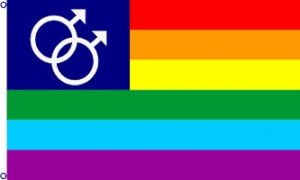Sexual Orientation and Gender Identity are Not Human Rights
 Policy makers around the world are regularly informed by seemingly authoritative sources that “sexual orientation and gender identity” are new categories of non-discrimination in international law.
Policy makers around the world are regularly informed by seemingly authoritative sources that “sexual orientation and gender identity” are new categories of non-discrimination in international law.
What this means is that national and international laws have to change to accept the idea that homosexuality and its various permutations including transvestitism cannot be discriminated against in any way.
Such non-discrimination would mean changes in marriage laws, adoption laws, and even the use of public restrooms. It would mean such notions couldn’t be kept out of any level of schooling including grade schools. As often as not, such claims of non-discrimination end up discriminating against Christians and others who have moral and religious objections to such notions.
We do not object to ensuring that homosexuals are not discriminated against in any unjust way. And we certainly oppose laws that make homosexuality or homosexual acts capital offenses. And we call upon all people of good will never to harm homosexuals in any way.
But opposing the homosexual agenda is a far cry from favoring the harm of homosexuals. And even though we favor protecting homosexuals from harm, it does not mean we hold that sexual orientation and gender identity are protected classes in international law. There are already international treaties that specifically protect such harms including the 1966 covenants that brought the Universal Declaration of Human Rights into legal force, the treaty against torture, and others.
The fact is that sexual orientation and gender identity are not accepted categories of nondiscrimination in UN treaties or other aspects of international law. It does not matter that the Secretary General of the United Nations says so. He is not only wrong; he oversteps his authority in saying so. It is also irrelevant that UN committees say so, or that law professors say so, or that the High Commissioner for Human Rights says so. It is a falsehood to claim that the UN General Assembly has ever agreed to such a notion.
Proponents of such a notion believe that if you get enough seemingly authoritative sources to make such a claim, then the claim becomes true. But the fact is that at least half the Member States of the United Nations oppose even using the phrase “sexual orientation and gender identity” even in non-binding documents let alone in hard law treaties. International law is made by treaty and not by the comments of the Secretary General.
We salute the Member States that have opposed this notion in the General Assembly. We salute also those countries that have determined not to remain on defense. Too often countries representing traditional peoples are rather like punching bags for the radical left at the UN. And they tend to stand there taking punch after punch after punch. But some countries are going on offense.
A coalition of 60 countries representing all regions of the world signed a joint declaration in 2008 making clear their opposition to regularizing sexual orientation and gender identity. Moreover, some countries, such as Russia and others in Eastern Europe, are outlawing homosexual propaganda in schools. While concomitant violence against homosexual is deeply regrettable, such countries have a right to oppose the indoctrination of their children with immoral and unhealthy notions of sexuality.
C-FAM urges governments to continue standing up to the radical sexual left and to block all efforts to make sexual orientation and gender identity new categories in international law.

